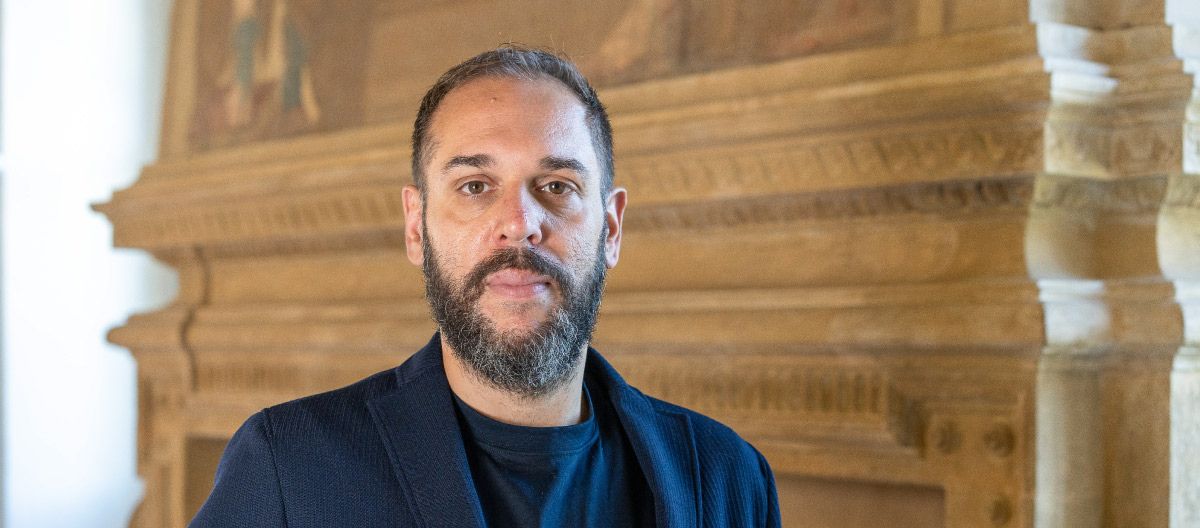
AI and Personal Growth: How Artificial Intelligence is Revolutionizing the Workplace
22 October 2024Interview with Cristiano Boscato, Top 100 Italian Managers according to Forbes and BBS Professor
In 2024, artificial intelligence has seen unprecedented acceleration, revolutionizing the way companies and individuals work and collaborate. We asked Cristiano Boscato, recently named once again among Forbes’ Top 100 Italian Managers, to share his views on recent developments in the field of AI and what the future holds.
Cristiano is a professor at Bologna Business School, teaching in the Professional Master programs in Artificial Intelligence and Innovation Management and Data Marketing and Analytics, as well as courses on Digital Transformation in the MBA programs. In the Open Program, he teaches AI for Busines and is also a professor in the Executive Master in AI for Business and Executive Master in Sales and Marketing.
Cristiano, congratulations on being named again among Forbes’ Top 100 Italian Managers! We’re interviewing you again after two years, not only to congratulate you on this recognition but also because what you predicted about AI and Machine Learning has come true. Today, we have increasingly targeted educational programs, and generative AI is almost a commodity in our daily lives. What are your thoughts on recent developments in the field, and what innovations await us in the near future?
Thank you for the congratulations! It’s clear: the recent advancements in artificial intelligence have seen generative AI emerge as a true commodity, integrated into the daily lives of businesses and individuals, as I predicted years ago. Today, it’s rare to find companies that aren’t considering projects related to generative AI. However, what strikes me is how often they only scratch the surface of its potential. Many focus solely on the technical aspects, or worse, are held back by fears about the changes this technology could bring. There’s a lot of talk about risks, but little about concrete use cases. And most importantly, there’s still limited understanding of what AI truly is.
AI has the potential to radically transform not only business processes but also the way we collaborate and innovate. This technology allows us to automate complex tasks and generate content at unimaginable speeds, but I believe the real breakthrough will come when we shift from AI as a mere tool to a more symbiotic collaboration between artificial and human intelligence.
I expect the next developments to focus on human-centric AI, where technology will increasingly aim to enhance our intellectual, emotional, and social abilities. We will see applications that not only mimic intelligence but actively collaborate with us to solve complex problems, from education to healthcare, from resource management to climate change.
In a recent LinkedIn post, you encouraged looking forward and building an “ecosystem where improving people stimulates organizational progress.” What role do you think artificial intelligence can play in enhancing personal and organizational growth?
Artificial intelligence can become the catalyst for a new growth paradigm, where personal development is closely linked to organizational growth.
I envision a future where algorithms don’t just optimize processes but provide continuous guidance for ongoing improvement. For example, AI can facilitate personalized learning, offering real-time feedback and helping each of us become better managers, more empathetic, and with a broader vision. Already today, AI supports us in making informed decisions, generating content, writing code, and optimizing our productivity.
Business growth depends on our ability to combine strategy and technology: a balance between intuition, creativity, analysis, and empathy. Technology is not the end goal, but a powerful enabler that allows people to express their potential. When people realize their potential and find satisfaction in their work, business success naturally follows.
As a professor in the Executive and Professional Master programs at BBS and Executive Director of the Open Program in Artificial Intelligence and Generative AI, what do you consider the most important aspects of training the leaders of tomorrow? How do these courses prepare managers to face the challenges of adopting artificial intelligence, and what skills do you think are indispensable?
In today’s context, companies must move beyond the rigid separation of hard and soft skills, converging toward the concept of integrated competencies, now called fusion skills. These cross-functional skills allow us to maintain human uniqueness in the face of technology.
This new approach requires a combination of analytical thinking, creativity, decision-making abilities, empathy, resilience, and long-term vision. And we must not forget the importance of enjoying what we do: if it’s not fun, it’s hard to succeed in the long run.
Key skills include continuous learning, technological literacy, reliability, leadership, and talent management. Only by integrating these abilities with self-awareness can individuals and organizations successfully tackle the challenges of the future, in a world where technology amplifies but cannot entirely replace human value.
As for AI, it’s crucial that tomorrow’s leaders develop a deep understanding of AI, not just as a tool but as a strategic partner. The training programs at Bologna Business School aim to equip managers to leverage AI for more informed and innovative decisions, with a particular focus on ethics and the social implications of these technologies. We prepare leaders to ask not only what AI can do but what we should really have it do to transform companies into ecosystems that truly enhance our lives.
